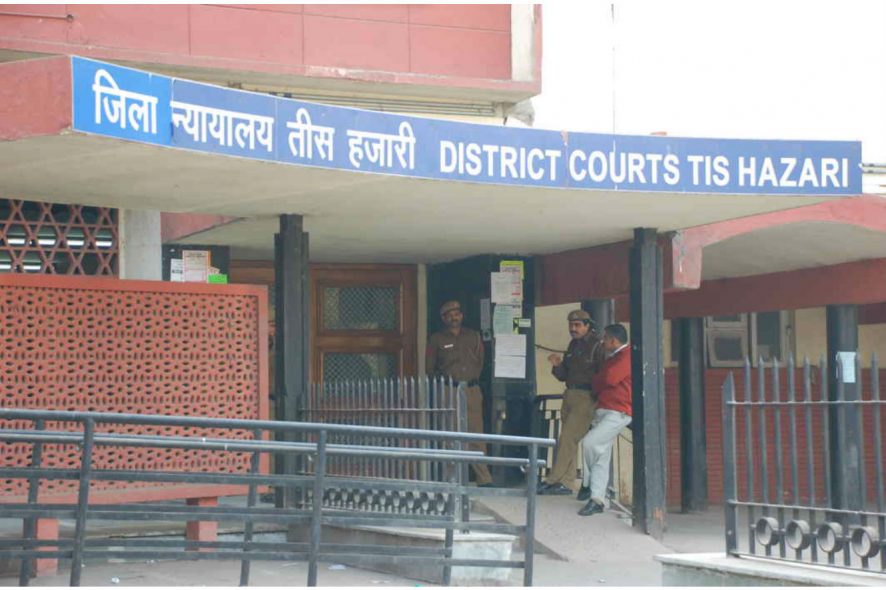Tis Hazari Courts, New Delhi: While deciding a matter under Section 138 of the negotiable Instruments Act, 1881, Devanshu Sajlan, MM-05 (NI Act) reiterated the settled position of law that there is no concept of vicarious liability in case of a sole proprietorship concern since a sole proprietorship concern does not have a separate legal identity from its proprietor.
A complaint was filed under Section 138 of the Negotiable Instruments Acts, 1881.
The complaint proceeded against the accused firm, accused persons 1 and 2. Though, later the proceedings against accused 1 were abated pursuant to her death. Thereafter, the matter proceeded only against an accused firm and accused 2.
It was stated that the accused firm was a partnership firm of which accused 1 was a partner and accused 2 was an authorized signatory/attorney.
The accused partnership firm had purchased Kirana Goods from the complainant and the parties had settled their accounts and pursuant to the said settlement, the accused firm issued two cheques in favour of the complainant and the said cheques were signed by accused 2.
The said cheques were returned dishonoured with remarks ‘Funds Insufficient’. After which, the firm sent a legal demand notice, but the accused persons allegedly failed to pay the cheque amount, due to which the present complaint was filed.
The stance of accused 2 was that the accused firm was a sole proprietorship concern, and he was merely the authorized signatory of accused 1, who was the sole proprietor of the accused firm.
Analysis, Law and Decision
High Court expressed that in order to establish the offence under Section 138 NI Act, the prosecution must fulfil all the essential ingredients of the offence. In addition to this, the conditions stipulated under Section 142 NI Act have to be fulfilled.
“Liability of authorised signatory of a proprietorship concern.”
The Bench held that the accused 2’s contention that the accused firm was a sole proprietorship concern and he was merely the authorized signatory of accused 1 who was the sole proprietor of the accused firm was indeed correct.
“It is a settled position of law that there is no concept of vicarious liability in case of a sole proprietorship concern since a sole proprietorship concern does not have a separate legal identity from its proprietor and therefore, it does not fall within the ambit and scope of Section 141 NI Act.”
The above-said position of law was laid down by the Supreme Court in Raghu Lakshminarayanan v. Fine Tubes, (2007) 5 SCC 103.
The Court remarked that as far as a sole proprietorship was concerned, it was only the sole proprietor who could be held liable under Section 138 NI Act for dishonour of a cheque drawn on the account of the sole proprietorship.
Adding to the above, Court stated that vicarious liability cannot be fastened on the employees/authorized signatories of a sole partnership firm, by taking aid of Section 141 NI Act. Hence, if the accused firm is proved to be a sole proprietorship concern, accused 2 would have no liability.
Though, in case the accused firm will be proved to be a partnership firm, then accused 2 would be liable under Section 141 NI Act since he is the signatory of the cheques.
“It is a settled position of law that the signatory of the cheque is vicariously liable in terms of 141 of the NI Act in case the accused is a company or a partnership firm.”
- Who has the burden of proof to establish that the accused firm is a proprietorship concern or a partnership firm?
The Court stated that it needs to be proved by the complainant that the accused firm was a proprietorship concern or a partnership firm because the legal status of a firm is the very identity of the said firm and without establishing the said legal status, the identity of the firm as a “person” cannot be verified/confirmed/established.
Hence, without the proof of the above-said fact, the statutory presumption under Section 139 NI Act cannot be raised in a casual manner. Therefore, the burden of proof to establish that the accused firm is a partnership firm lies upon the complainant.
- Whether it has been proved that the accused firm is a partnership firm?
The complainant could not conclusively establish that the accused firm was a partnership firm.
Decision
In view of the above discussion, accused 2 was acquitted from the charge of an offence punishable under Section 138 of the Negotiable Instruments Act, 1881. Hence, accused 2 was directed to furnish bail bond and surety bond in terms of Section 437-A CrPC.
Note: The span of the present case was almost 21 years (beginning from the year 1999).
[Durga Traders v. Saraswati Trading Co., 7538 of 2016, decided on 24-12-2021]
Advocates before the Court:
Sh. Vikas Aggarwal, Counsel for the complainant.
Sh. Pankaj Chawla, Counsel for the accused.






